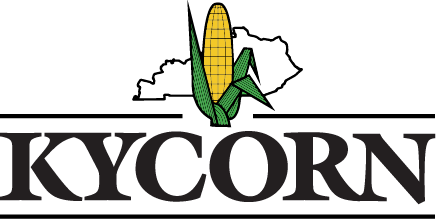In a letter to the EPA administrator, Neil Caskey, CEO of the National Corn Growers Association (NCGA), responds to the Scientific Advisory Board’s (SAB) draft commentary regarding the “Volume Requirements for 2023 and Beyond Under the Renewable Fuel Standard Program.” The SAB’s commentary raises doubts about the environmental benefits of ethanol.
Caskey’s comments highlight the research showing ethanol has significantly lowered greenhouse gas emissions. It also addresses SAB’s concerns about land use by providing data showing that farmers are doing more with less land. A copy of the letter is included below.
Dear Administrator Regan:
I write to you as the CEO of the National Corn Growers Association. Founded in 1957, NCGA represents nearly 40,000 dues-paying corn growers and the interests of more than 300,000 farmers who contribute through corn checkoff programs in their states. NCGA and its affiliated state associations and checkoff organizations work together to help protect and advance corn growers’ interests.
Studies Show Corn Ethanol Helps Cut Harmful Carbon and Tailpipe Emissions
Given corn growers’ significant contributions in the biofuel sector, I was concerned when I read your scientific advisory board’s recent draft commentary on the Volume Requirements for 2023 and Beyond under the Renewable Fuel Standard Program, which raises doubts about the ability of ethanol to significantly lower greenhouse gas (GHG) emissions and asserts that the use of ethanol leads to increased land use.
I wanted to provide you with a snapshot of the voluminous research on this topic, showing that corn ethanol plays a crucial role in fighting climate change.
There are no shortage of studies on the environmental benefits of corn ethanol. The Department of Energy’s Argonne National Laboratory, for example, has conducted extensive research on the matter and concluded that corn ethanol has reduced GHG emissions in the U.S. by 544 million metric tons from 2005-2019 and that the feedstock’s carbon intensity is 44 percent lower than that of petroleum gasoline. i
Research that has been conducted at some of the nation’s most elite institutions of higher learning have echoed Argonne’s findings. Research has shown that the use of corn ethanol offers an average reduction of 46 percent in GHGs when compared to pure gasoline.ii Emerging technologies promise to boost that reduction over the coming years.
These outcomes are widely supported by the vast body of data on this topic, including from studies by the U.S. Department of Agricultureiii, University of Illinoisiv and the University of Toronto.v
Corn Growers Are Achieving Higher Yields on Less Land
While there is a common misconception that the production of ethanol impacts land use, the data paints a different story, showing that as corn production has risen, land used to grow corn has not.
American farmers planted an estimated 94.1 million acres of corn in 2023, which falls short of the more than 100 million acres corn farmers planted a century ago. In the past decade, U.S. corn production has been over six times the production of the 1930s with fewer corn acresvi.
Throughout the 1930’s the average U.S. corn yield was 24.2 bushels per acre, grown on an average of 102.2 million acres for an average production of 2 billion bushels of corn. In contrast, the 2010s, well after the implementation of the Renewable Fuel Standard, brought an average U.S. corn yield of 161.5 bushels per acre, grown on an average of 91.4 million acres for an average production of 13.5 billion bushels of corn. In the decades between, yield grew steadily. On average, the annual increase in corn yield has been 1.8 bushels per acre, per year.vii
These efficient farm practices are only expected to improve. Over the next decade, growth in corn production is expected to continue although projected land area for corn drops from today’s levels to 89 million acres as yields continue to rise.
These data points come from the U.S. Department of Agriculture’s National Agricultural Statistics Service and are available to the public.
The Work of Corn Growers Can Support the President’s Climate Goals
It is important to note that any decision that hampers the use of these environmentally friendly products would complicate President Biden’s ambitious climate goals, which will almost certainly require the use of biofuels, such as corn ethanol, to be successful.
U.S. corn farmers believe so strongly in the case for higher blends of ethanol, because of corn ethanol’s ability to improve engine performance and reduce environmental impacts, all at a lower cost to consumers. Plus, corn ethanol contributes to rural economies across the country.
It is for these reasons that we take issue with the SAB’s commentary. We hope you will consider the science cited in this letter, along with the vast research that has been conducted on ethanol for the last 20 years, before any additional comments, recommendation or actions are taken related to this valuable biofuel.
We look forward to sharing additional information at the upcoming SAB meeting. In the meantime, should you have questions about the research on ethanol or anything else related to this issue, please do not hesitate to contact us.
Sincerely, Neil Caskey, CEO of the National Corn Growers Association
i Lee, U., Kwon H., and Wang, M. (2021),” Retrospective analysis of the U.S. Corn ethanol industry for 2005-2019: implications for greenhouse gas emission reductions.” Biofuels. Biofpr., 15: 1318-1331 https://doi.org/10.1002/bbb.2225
ii Melissa J. Scully et al. (2021) “Carbon intensity of corn ethanol in the United States: state of the science” Environ. https://iopscience.iop.org/article/10.1088/1748-9326/abde08
iii Lewandrowski, J. Rosenfeld, J. Pape, D Hendrickson, TJaglo, K. and Moffroid, K. (2020) The greenhouse gas benefits of corn ethanol – assessing recent evidence, Biofuels, 11:3, 361-375, https://doi.org/10.1080/17597269.2018.1546488
iv Unnasch. S. and D. Parida (2021) GHG Reductions from the RFS2 – A 2020 Update. Life Cycle Associates Report LCA. LCA.6145.213.2021 Prepared for Renewable Fuels Association.
v L.G. Pereira, O. Cavalett, A. Bonomi, Y. Zhang, E. Warner, H.L. Chum, Comparison of biofuel life-cycle GHG emissions assessment tools: The case studies of ethanol produced from sugarcane, corn, and wheat, Renewable and Sustainable Energy Reviews https://doi.org/10.1016/j.rser.2019.04.043.
vi Swanson, K. “Rising U.S. Corn Yields Boost Production Without Additional Land.” The Corn Economy, National Corn Growers Association, September 1, 2023.
vii Id.

